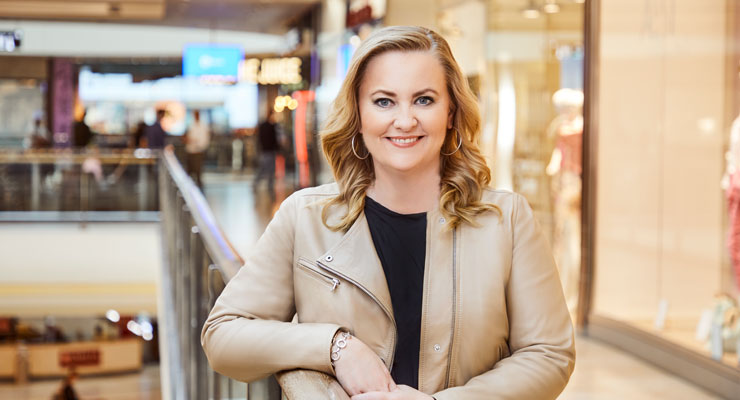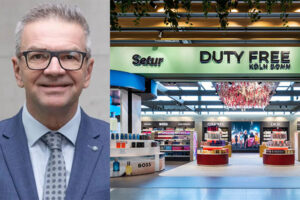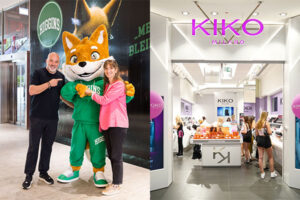ACROSS: What is your view of recent developments in the shopping center business? What fundamental changes do you see, especially in the wake of the Covid-19 pandemic?
JOANNA FISHER: Stationary retail is clearly on the rise again. Despite the energy crisis, we are seeing significant growth in sales and very positive development with an increase of 25 percent compared to 2019 in Poland, Italy, Spain, the Czech Republic, Denmark, and, in particular, Turkey – adjusted for inflation. In Germany, the recovery has taken somewhat longer. However, here, too, the first half of 2023 has been positive, year-on-year and compared to 2019. Sales are back!
ACROSS: How are frequencies developing?
FISHER: Sales are developing better than frequencies, but we are already back above 2019 in many countries. Despite the considerable challenges of recent years, it is clearly visible that retail real estate is a stable and resilient asset class.
ACROSS: At which locations do you see the greatest need for action due to the current challenges?
FISHER: The downtown centers in the inner city have suffered more from the effects of the coronavirus and the home office trend than most of the neighborhood shopping centers. However, we can see that sales are also coming back here. It is, therefore, less a question of location than of operator quality and willingness to invest. There is more to be done than ever before to continuously develop the properties. The transformation of space and the addition of complementary uses are also becoming increasingly important.
ACROSS: How do you perceive the overall mood regarding retail?
FISHER: The public often thinks that there are only weak and insolvent retailers. However, the opposite is true. Of course, there are some retailers and sectors that have been struggling, but there are also many very successful retailers that are reporting double-digit growth rates in sales every month and quarter – and they are continuing to expand. The mood outside Germany, in particular, is excellent. We are in intensive discussions with retailers about expansions, store sizes, and new locations. The market is more challenging in Germany, but the mood at our retail meeting in June was very positive. We see a clear trend towards larger shop sizes. Our partners are convinced that this will enable them to better present themselves to customers. The restraint is clearly over. In the first half of 2023 alone, we leased 380,000 sq m of store space and concluded around 1,300 leases – over a third more than in the previous year.
ACROSS: With which partners does collaborating work particularly well?
FISHER: We work very well with a large number of retailers. Among the tenants with whom we have recently concluded new leases, in some cases in large numbers, are Pepco, Only, the Inditex Group, H&M, MediaMarkt, Saturn, New Yorker, Kult, Aldi, Rituals, TK Maxx, and Thalia.
ACROSS: Do you see any trends regarding retail spaces?
FISHER: Our tenants prefer larger spaces, and in some cases they tend to concentrate on fewer locations at the same time. In this context shopping centers benefit from the fact that they are very flexible. Walls can easily be moved and shop spaces can be combined. However, that does not mean that the future of centers will be exclusively characterized by large stores. This development is very location-specific. Brands carefully examine whether a center is more of a convenience or destination center and which store size suits the respective location best.
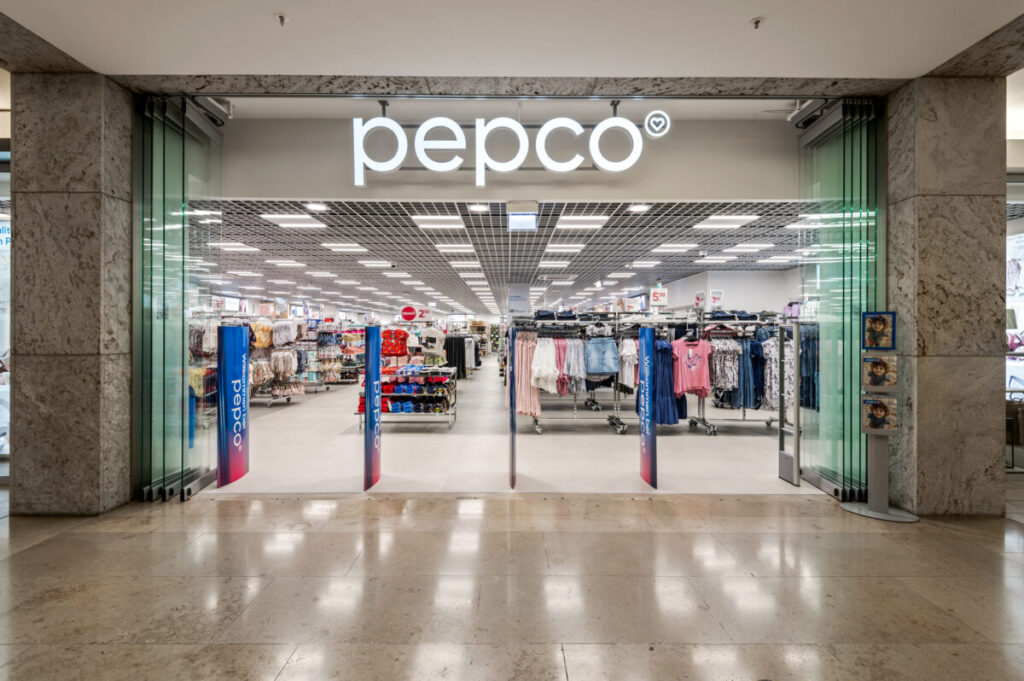
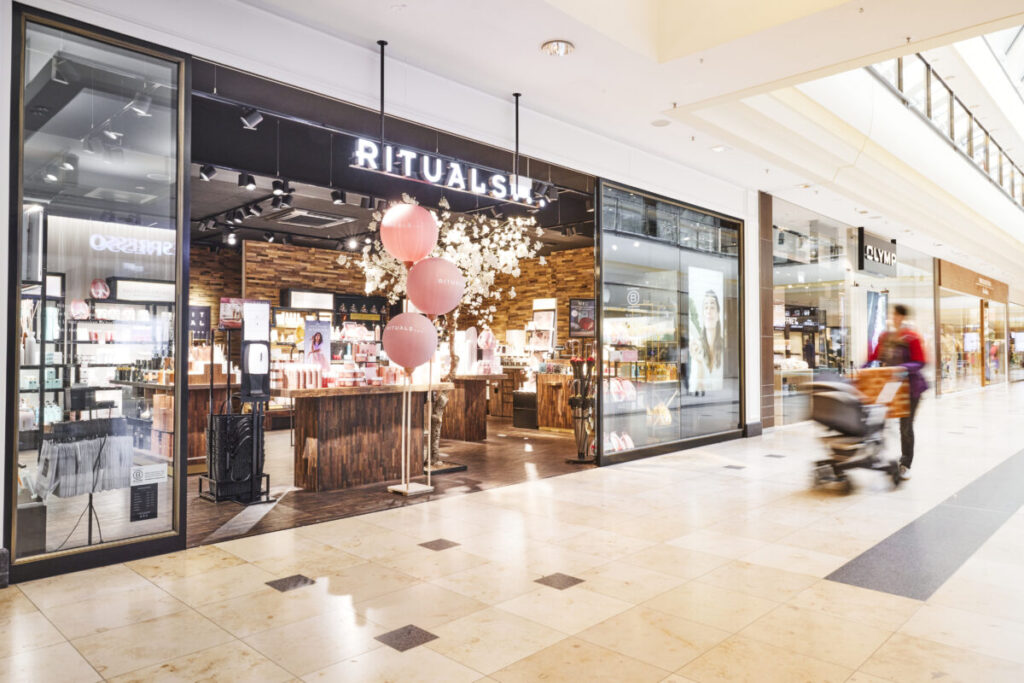
ACROSS: From your point of view, what brands and industries are currently conquering centers and new markets?
FISHER: Pepco is one of the brands currently expanding with us in Germany. Internationally, we are on the move with Rituals, for example. Many concepts are now discovering Italy as a new market. For example, our Romaest center in Rome will be home to the first Italian New Yorker store. Overall, cross-border business is very lively at the moment, and off-price concepts and food concepts are expanding strongly. In addition, there are sectors such as entertainment and non-retail concepts that we want to expand further. However, one must carefully check whether the concepts, for example, from the healthcare industry, fit the respective location.
ACROSS: Insolvencies have recently been a significant issue, particularly in your home market of Germany
FISHER: The lockdown in Germany significantly weakened the equity base of many retailers. As a result, what we have repeatedly warned policymakers about has come to pass. Fortunately, the self directed restructuring procedure in Germany is very helpful when it comes to giving good concepts a second chance. As a result, we have retained nearly two-thirds of the space affected at our centers. Galeria will also remain our tenant, with one exception – and we already have a new tenant for that location.
ACROSS: What are the most exciting projects of ECE Marketplaces at present?
FISHER: One very exciting and innovative project is definitely the new sports and outdoor experience world at our G3 Shopping Resort Gerasdorf in Austria. With the center now covering a new area of 5,000 sq m and a further 3,000 sq m of outdoor space, we have numerous new retail, product testing, and experience areas at which products can be tried and experienced. We believe in that location’s outdoor focus and our shopping center fund has strongly invested in this development project. Another vital topic in the retail real estate industry is gastronomy. For example, we will expand the Main-Taunus-Zentrum in Frankfurt to include a 7,000-square-meter outdoor “food garden”. Also in Frankfurt, at the Skyline Plaza between the trade fair and the central train station, we plan to expand the sector and tenant mix under the “the SKYLINE – the ONEEXPECTED” motto. With this new concept, we are putting a strong focus on certain topics and theme clusters. The idea is to focus on mobility, sports, home, and family on the second floor. Another major innovation project is Potsdamer Platz in Berlin – The Playce. We have attracted exciting concepts, such as Mattel, Manifesto, and the first sustainable “Conscious Fashion Store” from Peek & Cloppenburg Düsseldorf.
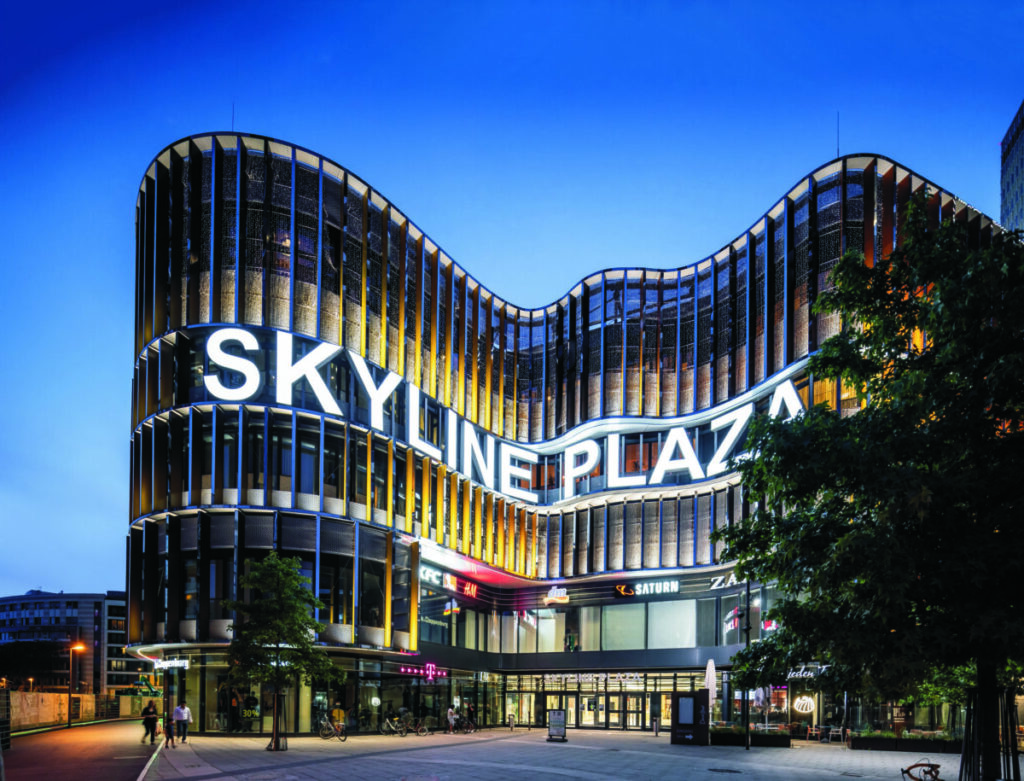
ACROSS: Where do you see ECE’s current and future growth potential?
FISHER: Our core business has constantly adapted to changing markets and consumer demands. Thus, the further development of shopping centers is a key growth area. We focus on the restructuring and repositioning of existing retail properties to keep them fit for the future. To that end, we are also talking to investors about taking on further management mandates. In parallel, our fund management company, ECE Real Estate Partners, is actively looking for new shopping centers that can be purchased. Such as their recent acquisition of the PEP shopping center in Munich, one of Germany’s Top 5 shopping destinations. Opportunities to access good properties will certainly arise, especially in the challenging transaction market.
ACROSS: On the investor side, ESG is the most relevant topic. What is happening at ECE in that area?
FISHER: Compared to other asset classes, ESG at shopping centers is significantly more complex. We invest a lot of time and expertise to offer investors suitable solutions. One example is the energy refurbishment roadmap. It is a detailed, efficient, and coordinated plan to gradually achieve climate neutrality, taking into account the investment costs and considering the life cycle of the individual technical systems. The key is to always keep the investor’s strategy in focus. At the same time, we are very active at the political stage in Berlin and Brussels in order to learn about new requirements early and to bring the unique features of shopping centers into the political consultation process.
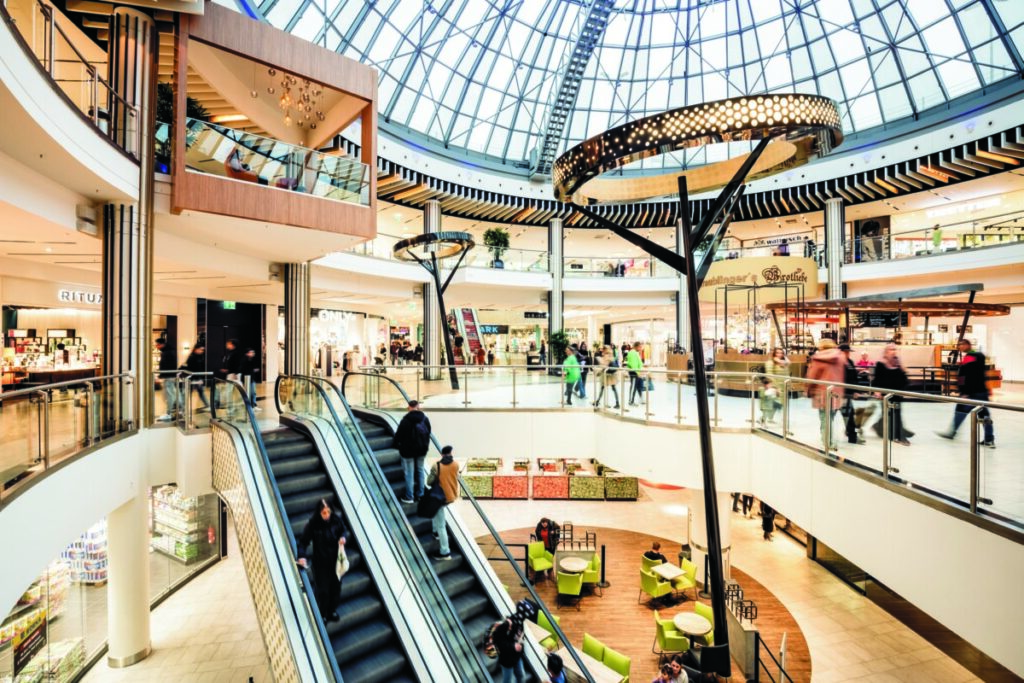
ACROSS: What other topics are investors focusing on?
FISHER: Financing is very important. At present, in particular, it is essential to prepare the refinancing of objects very thoroughly. I am pleased that our experts have recently succeeded in agreeing on excellent terms. This shows that the banks have confidence in this asset class.
ACROSS: At a conference, CEO Alexander Otto recently said that ECE often acts in too complicated a manner, where is it necessary to simplify matters?
FISHER: ECE is a company with a long tradition, which is part of its success. However, in dynamic times, processes have to be put to the test. We have always been doing that – not only since the pandemic. Digitalization plays an essential role in that regard. Our lease agreements are a good example: They are traditionally long, complex, and detailed, as all parties want to safeguard their rights and obligations. However, many regulations are already law or have little relevance in practice. Concentrating on the essentials saves time for all sides. That is why we have introduced a digital lease contract that has been thinned out by half compared to the old contracts.
ACROSS: You assumed the chair of ECSP in mid-2023. Congratulations again on your new position. What will your focus be in the association’s work?
Fisher: Due to its complexity, retail real estate is an asset class with unique challenges. Therefore, we must play an active role in shaping policy and legislation as an industry. The National Councils have often been successful in that regard in their respective countries. However, much of the regulation relevant to our industry is now decided at the EU level – from EPBD to CSRD. Therefore, having a presence and a strong voice in Brussels is more critical than ever. We have decided to primarily focus ECSP’s work on lobbying.
ACROSS: You have repeatedly called for more cooperation within the industry. Where do you think more collaboration is needed to shape the industry’s future?
FISHER: There is a strong competition in the industry which is a good thing. However, there are topics where exchanging know-how or common standards is helpful. One example is the exchange of information on center security measures, as well as the Code of Conduct developed in Germany, which guided retailers, investors, and center operators during the coronavirus pandemic. I also see potential – always strictly within the framework of antitrust law – in common data standards and IT interfaces or in green lease agreements. As the ECSP Chairwoman, I want to stand for exactly that: Together, we can achieve much more. My current focus is on getting this message across to the countries via the National Councils and inspiring the stakeholders with our common goals.
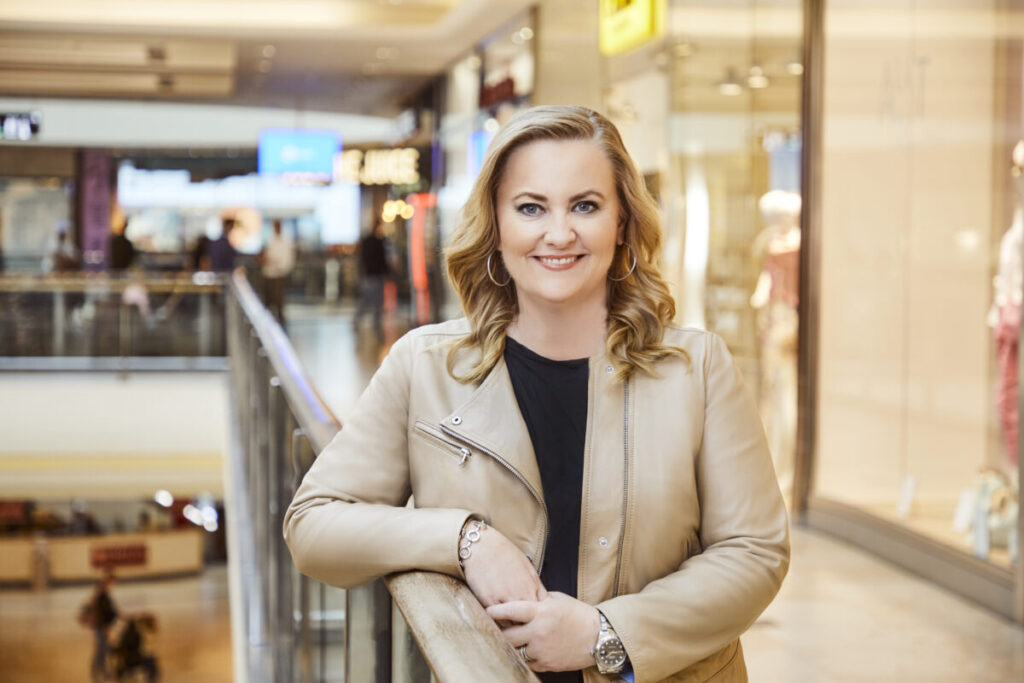
Joanna Fisher
Joanna Fisher is the CEO of ECE Marketplaces

